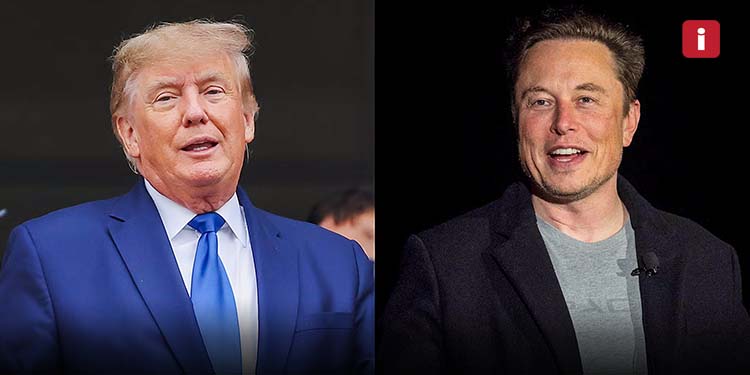In a dramatic turn of events, Elon Musk has officially stepped down from his role in the Trump administration, bringing his 130-day tenure as head of the Department of Government Efficiency (DOGE) to an end. While the position was always described as temporary, Musk’s exit comes on the heels of a public fallout with President Trump over a controversial spending bill raising questions about whether the tech billionaire’s foray into politics was ever built to last.
This isn’t just another headline—it’s a revealing chapter in the ongoing experiment of blending Silicon Valley efficiency with Washington bureaucracy. And it may signal a broader reckoning for tech leaders who flirt with the idea of public office.
Why Elon Musk Took a Role in the Trump Government
When Musk joined Trump’s DOGE office earlier this year, eyebrows were raised across both the political and tech spheres. The DOGE (yes, deliberately cheeky) was formed as part of President Trump’s second-term pledge to cut “unnecessary government fat” and improve fiscal efficiency. Musk, with his bold claims and anti-red tape ideology, seemed like the perfect face for this mission.
He wasn’t technically a full-time government official. Instead, Musk was appointed as a Special Government Employee—a title that gave him a broad mandate but limited tenure. He promised to bring the same disruptor mindset that built Tesla, SpaceX, and Neuralink to the slow-moving corridors of D.C.
And for a while, it looked like he was making a dent.
The Tipping Point | Trump’s “Big Beautiful Bill”
Musk’s exit was triggered by his disagreement with a new federal spending package dubbed the “Big Beautiful Bill” by President Trump. The bill proposes expansive tax credits, increased infrastructure investment, and sweeping social subsidies, something Musk saw as a direct contradiction to DOGE’s original mission to cut $2 trillion in federal waste.
Taking to his social media platform X, Musk publicly criticized the bill for “undoing months of hard-earned savings with a single stroke of a pen.” Insiders suggest he had already clashed with senior cabinet members about priorities and spending.
Within days of his post going viral, Musk’s resignation was confirmed.
What Did Musk Actually Achieve in 130 Days?
Despite a premature departure, Musk’s brief stint at DOGE was far from uneventful. Under his leadership:
- The administration claims to have saved $175 billion in projected wasteful spending.
- DOGE conducted a massive audit of overlapping federal programs, cutting or consolidating over 90.
- A controversial move led to a 12% reduction in the federal workforce, drawing criticism from both unions and lawmakers.
Critics argue that the cuts created chaos in essential services. Supporters call it a necessary reset. Either way, Musk’s tenure made waves.
Can Tech Logic Work in Government?
Musk’s exit adds to a growing debate—can tech titans truly succeed in public administration?
Tech operates on speed, scale, and disruption. Government relies on procedure, compromise, and legacy systems. Musk’s experience revealed just how wide the gulf really is. While his efficiency-first philosophy worked wonders in the private sector, it hit resistance in an environment ruled by politics, not performance.
The irony? Musk is a known advocate for AI in governance. Yet when given a chance to lead reform, even his human-led efforts faced institutional friction.
What’s Next for Musk?
Following his departure, Musk confirmed on X that he’ll be “refocusing on business and product innovation.” He hinted at major upcoming announcements across Tesla’s Full Self-Driving 2.0, SpaceX’s Mars prep, and xAI’s AGI roadmap.
He also suggested that while he’s stepping away from formal politics, he’ll “never stop challenging systems that waste time and money.”
Market reaction was mixed. Tesla stock saw a modest 2.5% uptick after the news, interpreted as a return of focus to the business front.
 What Happens to DOGE Now?
What Happens to DOGE Now?
The DOGE office was a highly personalized initiative with Musk as its face. With his exit, the future of the department is uncertain. Trump has not yet named a successor, nor has he confirmed whether the office will be dissolved or restructured.
Some insiders claim the White House may pivot DOGE into a learner advisory body, while others suggest it will quietly disappear before the 2026 midterms.
Either way, Musk’s departure leaves a vacuum one that may not be easy to fill.
Public Sentiment | Praise, Memes, and Criticism
The public response has been loud, sharp, and—unsurprisingly—split. While some conservatives hailed Musk as a patriot betrayed by politics, others mocked his departure as yet another failed ego trip. Social media was flooded with hashtags like #DOGEFail, #MuskOut, and #EfficiencyExit.
Memes portraying Musk “rage quitting” Washington are already viral, and political commentators are debating whether this was a power play or damage control.
Final Thoughts
Elon Musk’s exit from the Trump administration is more than just a resignation—it’s a case study in the limits of technocratic thinking in a political world.
For Insight Tech Talk readers, it also signals something bigger: the boundaries between technology, politics, and leadership are blurring—but not always successfully. As we look ahead, one question looms large: can any tech leader truly reform the government, or is the system too complex to “disrupt”?












































